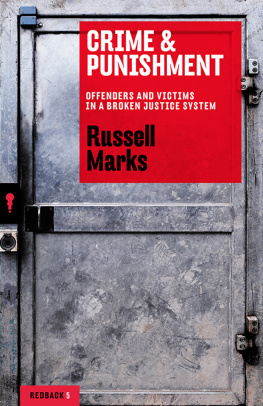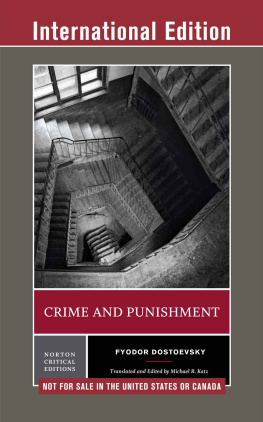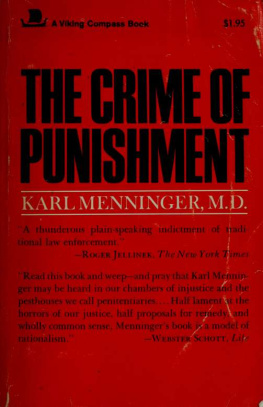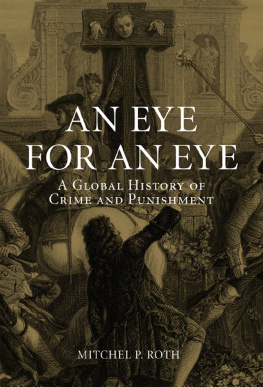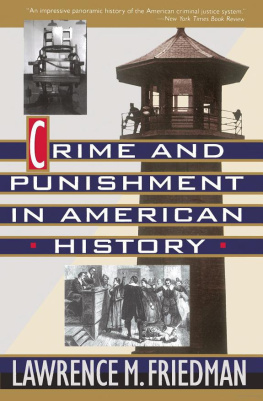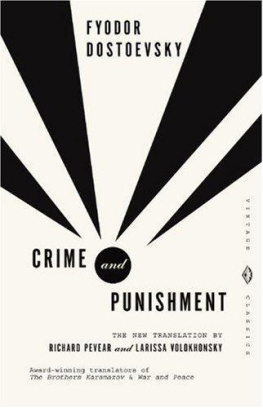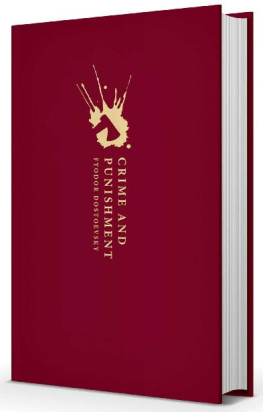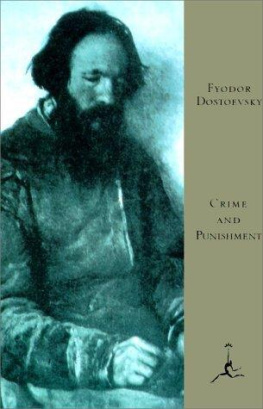
Crime and Punishment in Indonesia
Indonesias criminal law system faces major challenges. Despite the countrys transition to democracy, both the Criminal Code and the Criminal Procedure Code are badly out of date, the former only superficially changed since colonial times and the latter remaining as it was under Soehartos authoritarian New Order regime.
Law enforcement officers and judges are widely seen as corrupt or incompetent, and new laws, including new Islamic laws passed at the regional level, often contradict the Criminal Code and national statutes, including human rights laws.
This book, based on extensive original research by leading scholars in the field, provides an overall assessment of the state of criminal law, law enforcement and penal policy in Indonesia, considers in depth a wide range of specific areas of criminal law, and discusses recent efforts at reform and their prospects for success.
Tim Lindsey is Malcolm Smith Professor of Asian Law, and Director of the Centre for Indonesian Law, Islam and Society at the University of Melbourne.
Helen Pausacker is Deputy Director of the Centre for Indonesian Law, Islam and Society and a Principal Research Assistant in the Asian Law Centre, the University of Melbourne.
Routledge Law in Asia
Series editors
Randall Peerenboom
Pip Nicholson
Michael Ng
Juries in the Japanese Legal System
The Continuing Struggle for Citizen Participation and Democracy
Dimitri Vanoverbeke
Confucian Constitutionalism in East Asia
Bui Ngoc Son
Religion, Law and Intolerance in Indonesia
Tim Lindsey and Helen Pausacker
Constitutional Interpretation in Singapore
Theory and Practice
Jaclyn L. Neo
Politics and Constitutions in Southeast Asia
Marco Bnte and Bjrn Dressel
Law and Society in Malaysia
Pluralism, Religion and Ethnicity
Edited by Andrew Harding and Dian Shah
Judicial Reform in Taiwan
Democratization and the Diffusion of War
Edited by Neil Chisholm
Constitutional Change in Singapore
Reforming the Elected Presidency
Edited by Jaclyn L. Neo and Swati S. Jhaveri
Crime and Punishment in Indonesia
Edited by Tim Lindsey and Helen Pausacker
Crime and Punishment in Indonesia
Edited by Tim Lindsey and Helen Pausacker
First published 2021
by Routledge
2 Park Square, Milton Park, Abingdon, Oxon OX14 4RN
and by Routledge
52 Vanderbilt Avenue, New York, NY 10017
Routledge is an imprint of the Taylor & Francis Group, an informa business
2021 selection and editorial matter, Tim Lindsey and Helen Pausacker; individual chapters, the contributors
The right of Tim Lindsey and Helen Pausacker to be identified as the authors of the editorial material, and of the authors for their individual chapters, has been asserted in accordance with sections 77 and 78 of the Copyright, Designs and Patents Act 1988.
All rights reserved. No part of this book may be reprinted or reproduced or utilised in any form or by any electronic, mechanical, or other means, now known or hereafter invented, including photocopying and recording, or in any information storage or retrieval system, without permission in writing from the publishers.
Trademark notice: Product or corporate names may be trademarks or registered trademarks, and are used only for identification and explanation without intent to infringe.
British Library Cataloguing-in-Publication Data
A catalogue record for this book is available from the British Library
Library of Congress Cataloging-in-Publication Data
A catalog record has been requested for this book
ISBN: 978-1-138-31738-3 (hbk)
ISBN: 978-0-429-45524-7 (ebk)
Typeset in Times New Roman
by Newgen Publishing UK
This book is dedicated to the late Munir Said Thalib and all those lawyers, scholars and activists who work tirelessly for law reform in Indonesia.

Geoff Todd, Crime and Punishment in Indonesia, 2020. Acrylic and charcoal on paper 110cm x 75cm. Published with kind permission of the artist.
Contents
Acknowledgements
Terminology
List of abbreviations
Glossary
TIM LINDSEY AND HELEN PAUSACKER
SIMON BUTT AND TIM LINDSEY
SIMON BUTT AND TIM LINDSEY
KEN M. P. SETIAWAN
TIM MANN
TIM LINDSEY
APSARI DEWI
LEOPOLD (LEO) SUDARYONO
RIFQI S. ASSEGAF
RIFQI S. ASSEGAF
RICKY GUNAWAN AND RAYNOV T. PAMINTORI
MAS ACHMAD SANTOSA AND STEPHANIE JUWANA
JOSI KHATARINA
LILIS MULYANI
DANIEL PETERSON
HELEN PAUSACKER
HELEN PAUSACKER
NADIRSYAH HOSEN
TIM MANN AND DINA AFRIANTY
SIMON BUTT
Dina Afrianty is a research fellow at the La Trobe University Law School. She is the author of Women and Sharia Law in Indonesia: Local Womens NGOs and the reform of Islamic Law in Aceh (Routledge 2015). Her current research focuses on the intersectionality of gender, law and religion in the context of Indonesias democratic transition. Dina is the founder and current President of Australia-Indonesia Disability Research and Advocacy Network (AIDRAN). She is also a research fellow at the Center of Social Difference at Columbia University, an Associate of the Centre for Indonesian Law, Islam and Society (CILIS) at the University of Melbourne, and an Associate of the State Islamic University in Jakarta.
Rifqi Sjarief Assegaf is currently completing his PhD at Melbourne Law School. He previously worked in the Presidents Delivery Unit (UKP4, Unit Kerja Presiden untuk Pengawasan dan Pengendaliuan Pembangunan) and the Satuan Tugas Pemberantasan Mafia Hukum (Presidential Task Force to Eradicate Judicial Corruption). Prior to that, he served as Executive Director of LeIP (20032007), a non-governmental organisation concentrating on judicial reform that he co-established. Rifqis main interests are legal and judicial reform, anti-corruption, and access to information; he is actively involved in research, legal drafting and policy advocacy in those areas. In 2005, he received The Asia Foundation 50th Anniversary Award in Recognition of Outstanding Contribution to Law Reform in Indonesia.
Simon Butt is Professor of Indonesian Law and Associate Director (Indonesia) of the Centre for Asian and Pacific Law at the University of Sydney, where he teaches and researches Indonesian law. He has previously held an Australian Research Council Australian Postdoctoral Research Fellowship and now holds an Australian Research Council Future Fellowship. He completed a doctoral thesis on Indonesias Constitutional Court, and researches and teaches in Bahasa Indonesia. He has written widely on aspects of Indonesian law, including







